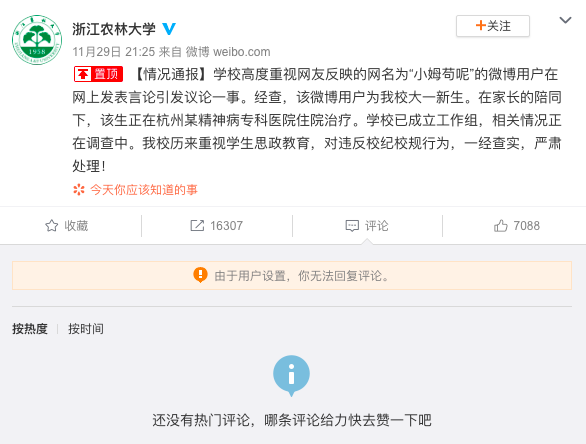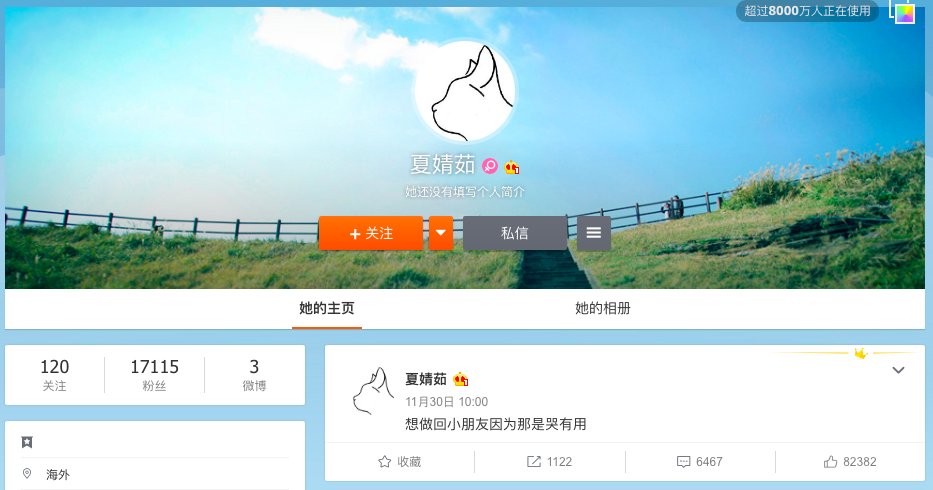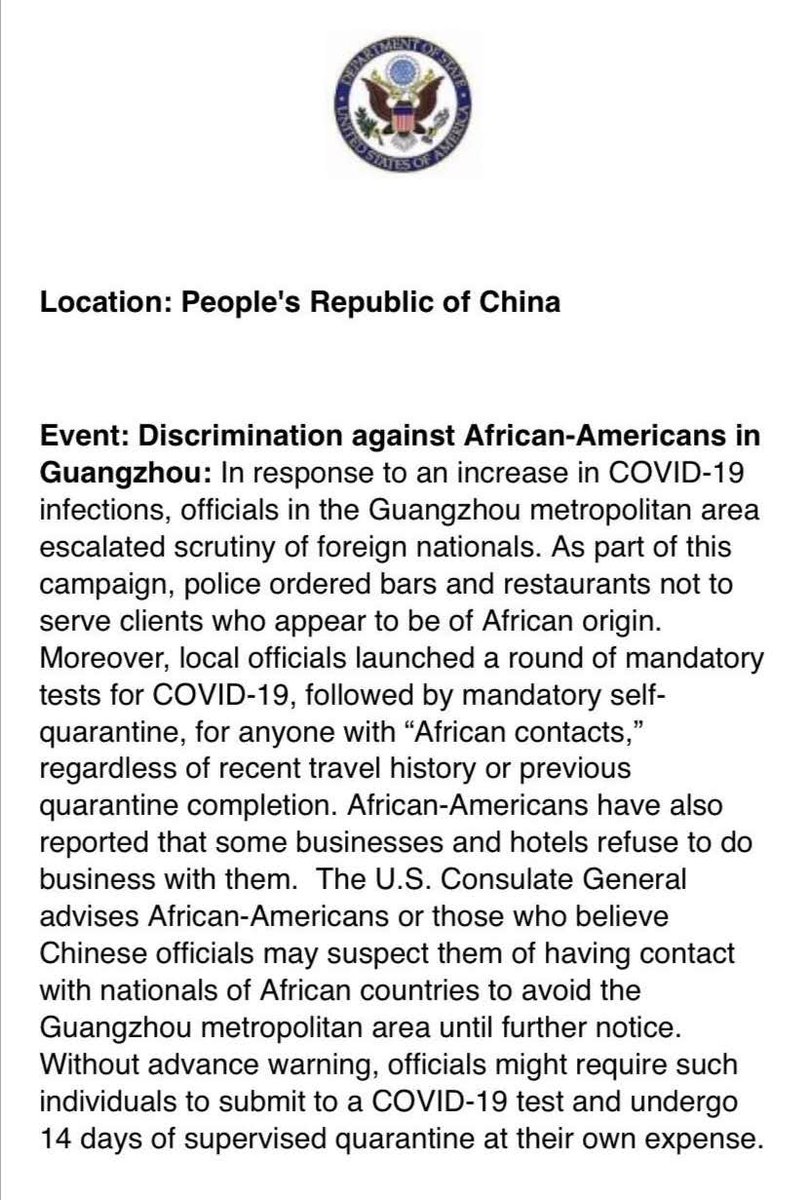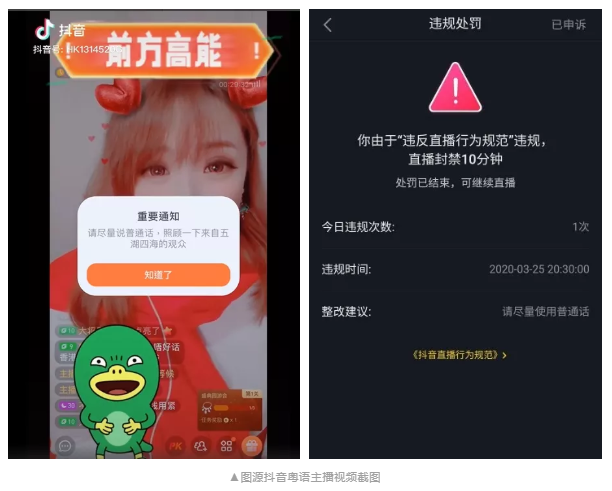
THREAD on a first-year university student in eastern China who became a controversial figure on Weibo after using the microblogging platform to extensively — and courageously — chronicle her sex life.
The woman, known by her online alias Xiaomugoune (a homophone of a Chinese phrase meaning “collared pup”), published a series of journal entry-style posts giving readers a peek into her on-campus sexual encounters — some of them paid, she says — with mostly older students.
“It was drizzling. Under the blinding headlights of passing cars, we were two young troublemakers awaiting trial,” she wrote in one post.
“The room’s round bed design was very awkward and inconvenient. Altogether, our phones fell into the cracks three times,” read another.
“The room’s round bed design was very awkward and inconvenient. Altogether, our phones fell into the cracks three times,” read another.
Openly writing about one’s sexual exploits is almost unheard-of in contemporary China, especially from a woman — though sex columnist #MuZimei did it for years before her blogs suddenly vanished from the internet in 2019. nytimes.com/2003/11/30/wor…
Xiaomugoune’s posts, too, have disappeared after going viral.
Although it’s unclear when exactly they started surfacing online, discussions about Xiaomugoune’s supposedly scandalous acts, and about her own morality, have been immortalized in screenshots of the now-deleted posts.
Although it’s unclear when exactly they started surfacing online, discussions about Xiaomugoune’s supposedly scandalous acts, and about her own morality, have been immortalized in screenshots of the now-deleted posts.
Some on social media have slammed Xiaomugoune as a “whore,” lecturing her about domestic laws. (Prostitution is illegal in China, punishable by 15 days’ administrative detention.)
Others have branded her posts “pornography,” which is also banned in the country.
Others have branded her posts “pornography,” which is also banned in the country.
Despite the many hash, myopic judgments circulating online, those sympathetic to the young student and her right to sexual autonomy say there is more to her story.
Xiaomugoune’s posts spotlight the transforming image of Chinese women from “timid and restrained” to more imposing, according to Cai Shenshen, a senior lecturer of Chinese studies at @Swinburne University of Technology.
“Mu Zimei’s writing and the student’s posts catapult Chinese women’s conversion from compatible and apathetic recipients of sex to brusque commanders of it,” Cai told @SixthTone, adding that Xiaomugoune seems to encourage the idea of “consuming” men.
But the online diary isn’t just about sex. Its raw emotions and poetic writing style also reveal the scars of a traumatic childhood and a seemingly troubled young adulthood. Xiaomugoune treads on her vulnerability, exposing wounds from the past and present:
She says her mother was an “intruder” in her father’s previous marriage. She talks about being sexually assaulted as a child. She mentions her relationship with a woman who was irritated about her relationship with other men.
She describes, in detail, older students she has had sex with — their appearances, affiliations, and habits — and the physical abuse she suffered at the hands of one of them.
She writes about the first time she did “business,” after her pimp made a $180 deal for three men.
“Sitting on the cheap spring hotel bed, I smoked a cigarette and bought something I wanted online,” she wrote in one post. “In that moment, I might’ve even been happy.”
“Sitting on the cheap spring hotel bed, I smoked a cigarette and bought something I wanted online,” she wrote in one post. “In that moment, I might’ve even been happy.”
Xiaomugoune writes candidly about depression. But her vulnerability hasn’t helped sway her critics, many of whom seem to believe that women shouldn’t seek out sex so unabashedly under any circumstances. 

But what about men?
A key question Xiaomugoune’s supporters have posed, arguing that the men who paid to have sex with her are getting a pass.
Those who are able to see beyond the young woman’s sex stories are urging others to acknowledge her traumatic past and mental health.
A key question Xiaomugoune’s supporters have posed, arguing that the men who paid to have sex with her are getting a pass.
Those who are able to see beyond the young woman’s sex stories are urging others to acknowledge her traumatic past and mental health.
On Sunday, Zhejiang A&F University confirmed that Xiaomugoune is a first-year student, that she has been sent for psychological treatment because of her blog posts, and that the situation is “under investigation.”
@SixthTone’s phone calls to the school went unanswered.
@SixthTone’s phone calls to the school went unanswered.

Meanwhile, Xiaomugoune hasn’t publicly commented on her motives for sharing such personal, intimate stories with millions of strangers, and her Weibo account has vanished.
Instead, a new account that appears to be registered under her real name has surfaced.
Instead, a new account that appears to be registered under her real name has surfaced.

So far, the unconfirmed account has been leaving updates about the young woman’s emotional state.
“I want to go back to when I was a child, because crying worked back then,” it posted Monday morning. weibo.com/5606735229/Jwg…
“I want to go back to when I was a child, because crying worked back then,” it posted Monday morning. weibo.com/5606735229/Jwg…
All of the above research and reporting by my colleagues @WanqingZhang65 and Rellie Liu, with editing support from @bibekbhandari.
Posted as a thread rather than an article for the usual frustrating reasons…
Posted as a thread rather than an article for the usual frustrating reasons…
• • •
Missing some Tweet in this thread? You can try to
force a refresh





